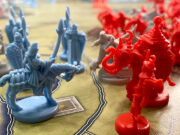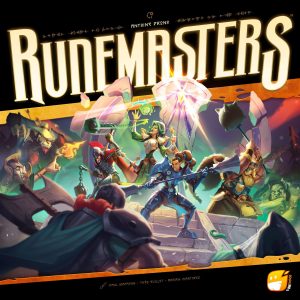 If it was my job to come up with board game titles, and I wanted to name a fantasy game while giving as little information away as possible regarding the theme, setting, mechanisms, or overall vibe, Runemasters would be an inspired choice. It’s so nebulous and nonspecific as to be functionally worthless. How does one become a runemaster? By what process do these runes come to be mastered? Does said mastery lead to any sort of dramatically ironic comeuppance?
If it was my job to come up with board game titles, and I wanted to name a fantasy game while giving as little information away as possible regarding the theme, setting, mechanisms, or overall vibe, Runemasters would be an inspired choice. It’s so nebulous and nonspecific as to be functionally worthless. How does one become a runemaster? By what process do these runes come to be mastered? Does said mastery lead to any sort of dramatically ironic comeuppance?
Sadly, these and many other questions are to be left unanswered. Runemasters rushes right past its title and dives headlong into the gameplay—but is it enough to stand up on its own?
Runemasters is a cooperative tower defense dice game for 1-4 players. It takes around 30-45 minutes to play.
Gameplay Overview:
Players in Runemasters are tasked with defending the central Temple of Mankind against an onslaught of monsters. The temple comprises four distinct lanes (three in a 3-player game), each comprising 5 slots for monsters to occupy. Every turn, new monsters are added to these lanes, and existing monsters move towards the temple.
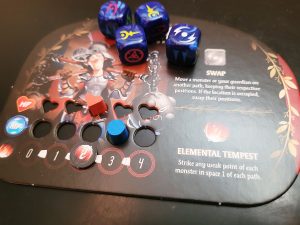
On your turn, you roll four dice and assign them in the order of your choice to various actions. Five of the die faces can be used to move to the matching lane, or deal damage to a monster with a matching weak point. You can only attack weak points of the closest monster, and it must be in the same lane as you. When all of a monster’s weak points are covered it is destroyed, and you gain the associated rewards for that monster.
Aside from basic move and attack actions, there is a sixth die face that lets you use your character’s specific ability. You may also spend two dice showing the same face to prevent monsters from advancing in your lane or spend any die to charge your character’s ultimate power.
When a monster reaches the end of its lane, it starts to attack whatever is in front of it. If a hero is in that lane they will take damage, and otherwise, the temple itself will take damage. If the temple is ever reduced to 0 health, or if all players are defeated, the players lose. However, if players manage to survive all the monsters in the deck without being defeated, the players win.
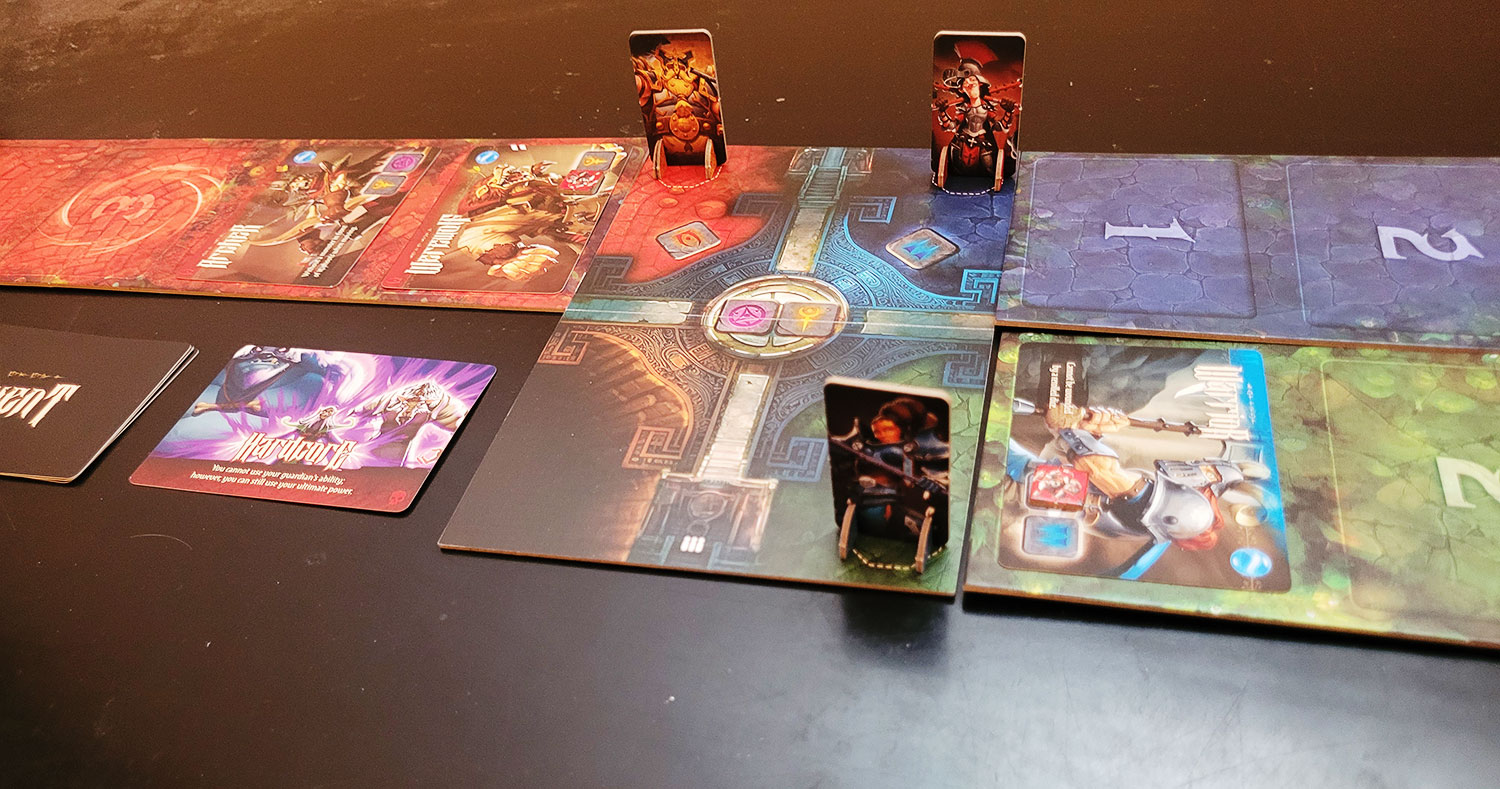
Game Experience:
I was glib about Runemasters’ title in the introduction, but it reflects a genuine frustration I have with the game’s design. At almost every step, Runemasters shows a tantalizing glimpse of greatness, but seems content to instead settle for goodness. The end result is a perfectly enjoyable game that feels like it could have been so much more.

Let’s start with the core mechanisms. The dice rolling in Runemasters is simple, but it’s also quick, satisfying, and contains a decent amount of tactical interest. The order you take actions is really important, and you have to balance dealing damage with charging your hero’s ultimate power and delaying the inevitable.
At the same time, you always feel somewhat beholden to the luck of the dice. Re-rolls are expensive, and the list of available actions is restrictive enough that you’re frequently forced into unsatisfying turns. Turns move quickly enough that it isn’t a huge issue, but it feels like it could use some additional polish.
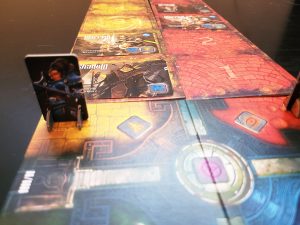
Runemasters’ cooperation also feels underbaked. One hero’s turn has little impact on the other heroes, so you frequently make your decisions without much consideration for how they affect your fellow players. Again, the game is punchy enough that this doesn’t ruin the game, and there can be fun table talk around which heroes to throw in front of which monsters, but it’s yet another area where the game could have been better.
Perhaps least forgivably, I found Runemasters to have a pretty significant issue with replay value. The turn-to-turn decisions aren’t tremendously different, and there is a serious paucity of different monsters and event cards. By just two or three games, you’ll have seen everything the game has to offer, which makes it much less exciting to return to. That staleness isn’t helped by the heroes on offer. On the positive side, each hero feels powerful in their own way, and every game provides players a chance to shine. Unfortunately, hero abilities are also inflexible, which means a given hero is always relegated to filling the same role every game.
Final Thoughts:
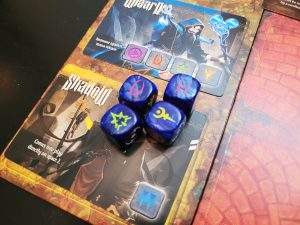
Runemasters makes me feel like a stereotypical strict teacher—I’m not mad, but I am disappointed because I know there’s so much wasted potential. With a little more polish around the dice rolling and cooperation, and some more content to keep the game surprising for longer, I think Runemasters could be a fantastic filler-weight cooperative game. As it is, the game is more of an entry-level novelty–great for the first few plays, then ready to be set aside for something with more bite to it.
Final Score: 3 Stars – A decent game, with the potential to be a great one.
 Hits:
Hits:
• Zesty dice action system
• Hero powers are exciting to use
• Scales well to all player counts
Misses:
• Too much randomness
• Minimal cooperation
• Low replay value




